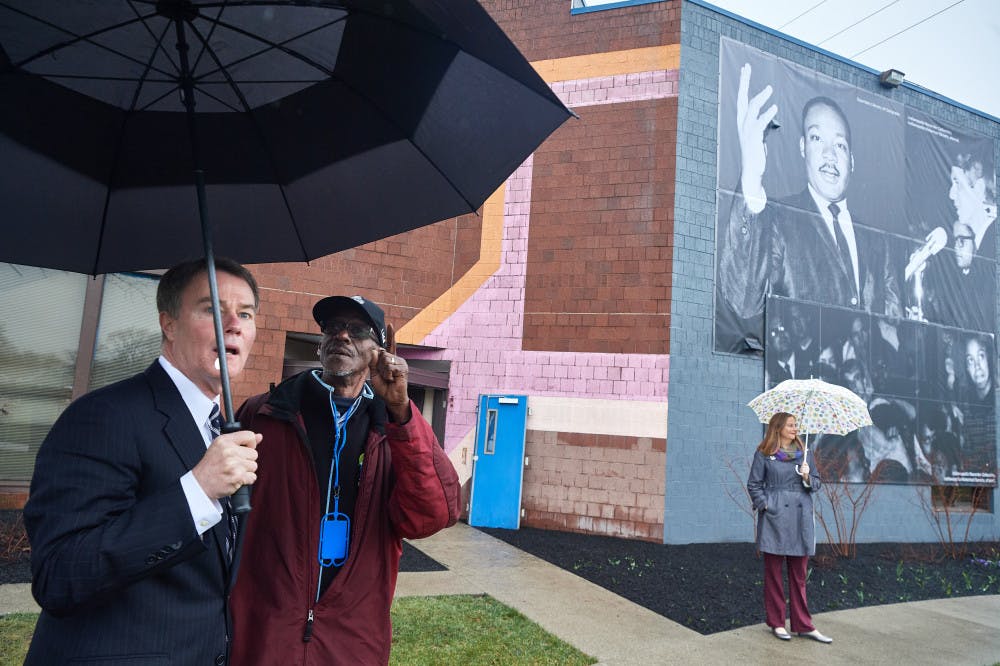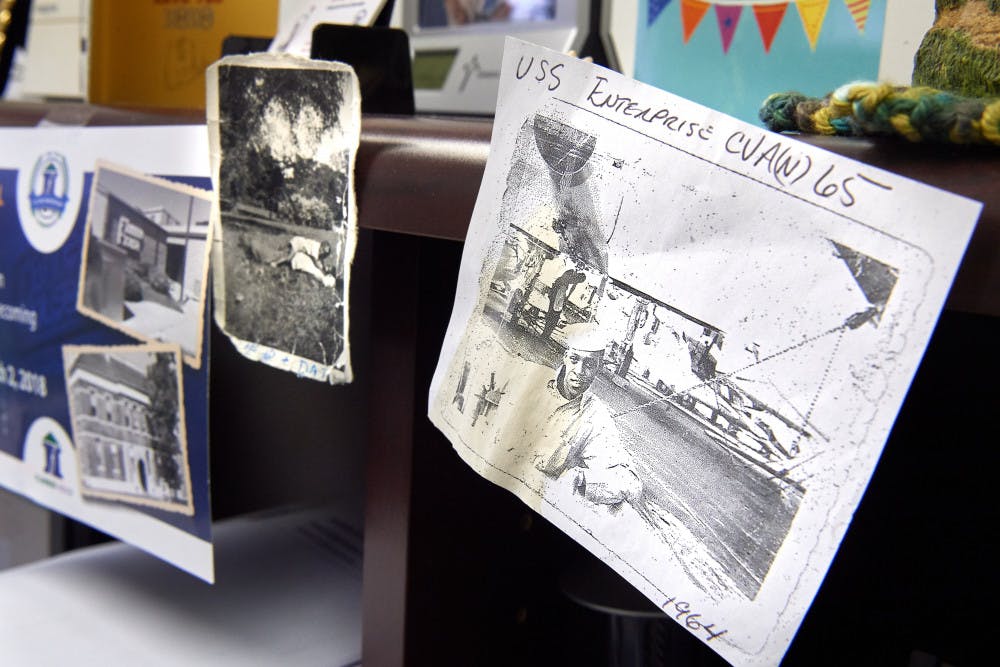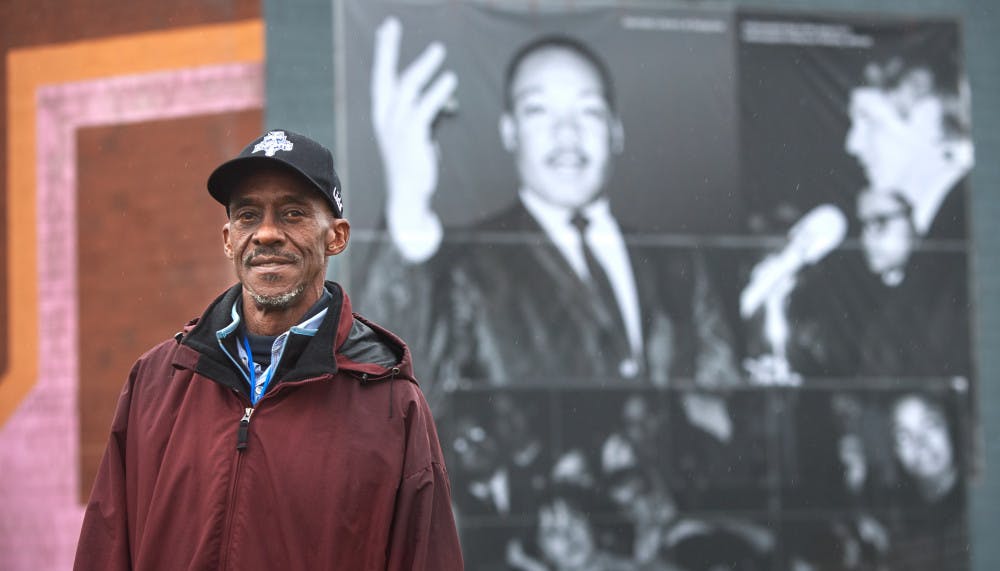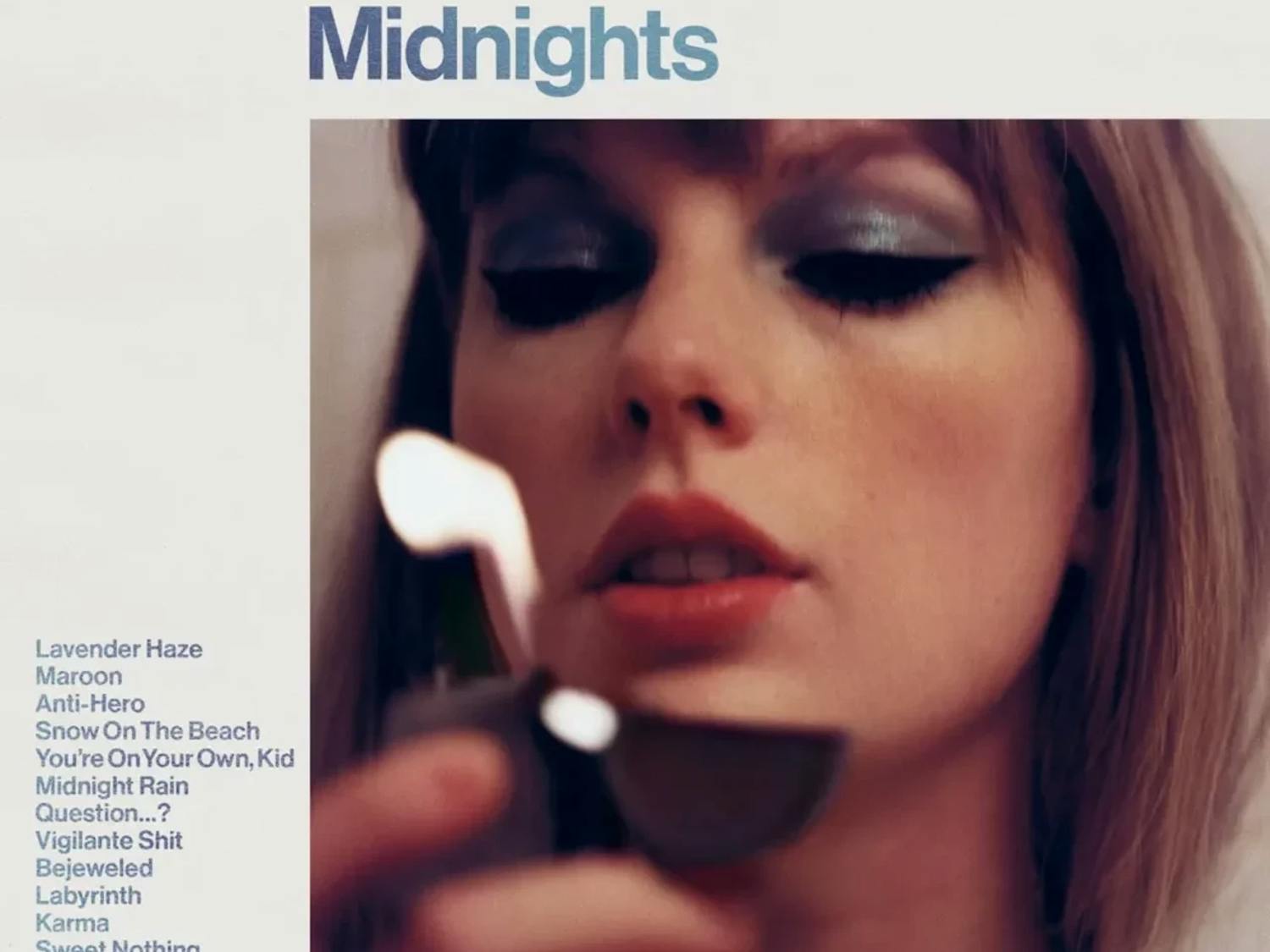An early spring shower taps onto an 8x8 white canopy tent that stands at the top of a small hill, at the far south end of Martin Luther King Park in Indianapolis. The former intersection of 17th and Broadway streets.
Soon various politicians and dignitaries, including Indianapolis Mayor Hogsett, will huddle beneath the tent to dedicate a large steel plaque and banners - marking a brief, but significant moment in history.
A moment of leadership, on an awful night, that is very much relevant in our age of lesser leaders.
April 4, 1968: the night then presidential candidate Robert F. Kennedy revealed to an unknowing African American crowd that Martin Luther King had been assassinated in Memphis, TN.
The TV crews have hurried up the hill, forming their video battle line. Tripods set, microphones on and cameras recording the usual speeches and remarks made by those who may know history, but have not necessarily lived it.
Behind the cameras, among the spectators, stands a tall, slender man of African descent. He listens intently, respectfully while deflecting the rain from a co-worker with a borrowed umbrella.

Abie Robinson listens as a senior program coordinator for Indy Parks. Fifty years early, on a blustery April night, a much younger Robinson, fresh out of the Navy, stood on the very same corner of 17th and Broadway.
An angry black man, searching for racial justice in a racially unjust nation.
Robinson belonged to a civic group that would gather to discuss issues important to the civil rights movement. There he learned Senator Kennedy would be speaking in Indianapolis.
“I wanted to hear what he had to say,” Robinson said. “I guess I compared him to his brother (President John Kennedy).”
Robinson never got to hear Robert Kennedy’s original speech.
While traveling from Muncie to Indianapolis, Kennedy learned that Martin Luther King had been shot and killed. Campaign workers, including civil rights activist Congressman John Lewis, advised against speaking. Indianapolis police would not guarantee his safety.
Senator Kennedy chose, despite the warnings, to address outdoor rally of approximately 2000 supporters.
The mostly impromptu speech was less than five minutes that borrowed from Aeschylus, was credited with preventing violence in the city.
“And even in our sleep, pain which cannot forget falls drop by drop upon the heart, until in our own despair, against our will, comes wisdom through the awful grace of God.” ~ Aeschylus
As Kennedy announced King’s death, Robinson’s emotions transformed from shock to anger.
“I was angry, I was hurting,” Robinson said. “I was 24 years old…just coming home from the Navy, knowing how this country treated us…
I just wanted to do something, but during the course of that short speech it reminded me of the words of Martin Luther King – only love can destroy hate.”
Despite riots breaking out across the nation, including surrounding metropolitan areas of Chicago, Cincinnati and Louisville, Indianapolis residents did not resort to violence.
“I came to a moment of understanding, what we don’t need is violence. What we need is peace, understanding, love,” Robinson said. “Understanding that an individual makes a choice… are you going to be positive or negative?”
The dedication is over. The politicians and dignitaries have moved on to the next speech. The TV crews, off to the next headline.
Robinson still carries this understanding with him as he scurries about the campus with the agility of someone less than half his age, checking his cell phone for which of two aerobics classes he has coming today as he tears down the small white canopy tent that just a while ago was the center of many caring reflections.
At 73, Robinson sees his own youth becoming too distant from the youth of today.
The class of ’63 Arsenal Technical High School grad has lived a great deal of history and wants to share it in order to keep that history from being repeated.
“Fifty years later I see the things in my life that happened and allow me to be in the position to strive to life a life that is worthy of his (King’s) sacrifice,” Robinson concluded.

As a sailor aboard the first nuclear powered aircraft carrier, USS Enterprise, Robinson learned of President Kennedy’s death. In Vietnam he witnessed the human cost of fighting a war for the wrong reasons.
His first civil rights protest came as a child, when he marched against the old Riverside Amusement Park’s policy of only letting blacks in one day a year.
The 24-year old activist attended church, Black Panther, and civic meetings, all with the hope of bettering his own and his people’s lives through social justice.
Then, on a hopeful night in April he learned that hope of a movement had been murdered, but the dream didn’t need to die. It was then that Abie Robinson gained his own wisdom through the awful grace of God.
https://youtu.be/BCrx_u3825g





